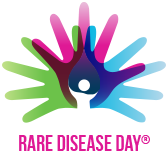As I listen to Christine Blasey Ford give her testimony at the U.S. Senate judiciary committee today I try to understand why there is such a rift between what men say and feel about this and what women say and feel. On the surface it’s obvious; in acts of sexual aggression it is almost always in the direction of men assaulting women, so it’s natural that when accusations surface the women back the women out of a sense of victim solidarity, and the men become defensive.
But surely there’s more to it. The female part of this equation is fairly clear, but why do so many men so predictably fall into the defensive stance, where they minimize the apparent effects of such aggressions, deflect into tangents about due process, and otherwise regress into the juvenile “bro” collective.
As I pick these things apart, some ideas emerge.
Why the focus on “due process?” There is a somewhat reasonable explanation for this, at least at first glance. In most western democratic countries we have pretty decent legal systems, if not always in practice at least in theory. One of the founding principles is that an accused person is innocent until proven guilty. People of a certain vintage might remember that in the Soviet Union, all one supposedly had to do to rid oneself of an annoying neighbour or co-worker was denounce them to the KGB or the Stasi. People in the western world were appalled at this and we congratulated ourselves on our principles and practices of due process.
Then along comes the Internet and the social networks, which elevated the “court of public opinion” to near-legal status. Now, if you play your cards right, you can just about orchestrate a KGB-like disappearance of someone by launching an accusation on social media and letting the tide of public denouncement do the rest. This is rightfully something to worry about.
But where does that fit in with the various accusations in the #metoo era? Non-critical thinkers of the knee-jerk-reaction variety will jump to the “lack of due process” question right out of the gate. A woman accuses a man of some sexual indiscretion or assault and the men all coral together and complain about a lack of due process, accusing the accuser of character assassination via the aforementioned court of public opinion and conjuring the shadow of the KGB and Stasi.
Well I have news for you. Due process is still a thing. Credible accusations lead to hearings. Do you think Jian Ghomeshi just walked into work one day and was shown the door out of the blue? Do you think Bill Cosby was picked up off the street and thrown into a black Lada and driven to Rikers Island based on a rumour? Was Harvey Weinstein just magically divested of Miramax Pictures by a wand-waving Tinkerbell and her Instagram followers?
No. Credible accusations lead to investigations and hearings. That’s what’s happening right now in Washington DC, where Christine Blasey Ford is accusing Brett Kavanaugh of some pretty nasty things, and she’s doing it in front of a U.S. Senate judiciary committee. Not Facebook. Not Sun News. A U.S. Senate judiciary committee.
This is how it’s supposed to work, so all those guys who complain about a lack of due process please shut up and listen to the hearing. Someone like Ford, an established professor at a respected university, doesn’t just make this up.
As to why men tend to go off on that tangent more than women, I have a theory. As I said earlier, these aggressions happen to women far more than they happen to men, and the perpetrators of the aggressions are more likely to be men. Right there you see a clear and understandable division in how these things will be thought about and acted upon.
Of course not all men are like that. But a lot are, or at least they were in their arrogant youth. I suspect one of the reasons why so many men tend to downplay these accusations is because many of them are guilty of them, either directly or indirectly, such as having witnessed it and done nothing, or having re-told the tasteless jokes over and over.
The mind is a funny thing, and it finds ways to make us feel less guilty over time. It rearranges our memories, and it comes up with distractions and tangents in order to justify the thing which may or may not have occurred. To the guilty mind these assaults were not assaults. Aggressions were not aggressions. It was long ago, and remembered differently. The lead balloon acquires gas over time so as not to weigh one down.
Well here’s a news flash: grow up! See with your eyes and your mind and not with your biases, justifications, and unreliable memories. This shit is real, and the people involved deserve your respect. Kavanaugh has a right to a hearing, and Ford and the other accusers have a right to tell their stories without coercion or threats. It’s not a question of just blindly believing every accusation; it’s a matter of determining the credibility of the accusation (the majority we hear about can be instantly identified as credible) and then moving to the next step; the hearing. And it’s no accident that it’s called a “hearing” because it involves listening. So listen.
(Published simultaneously on Facebook.)

